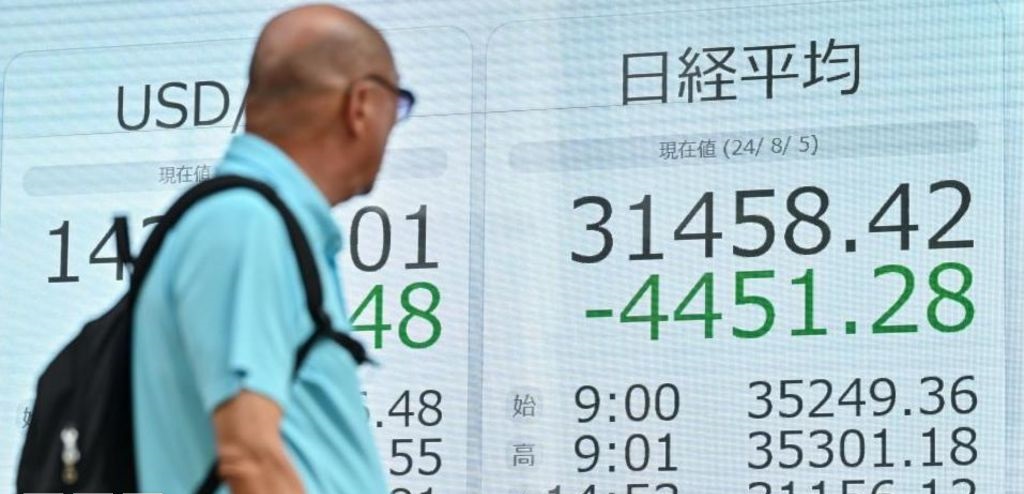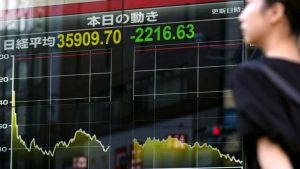European and UK Stock Markets Decline Amid US Economic Concerns
3 min read
European and Asian stock markets experienced significant declines on Monday, largely driven by fears of a potential slowdown in the US economy. The FTSE 100 in London dropped by 2.8%, the CAC-40 in Paris fell by 2.5%, and Frankfurt’s DAX slid by 3.2%. This downward trend followed a severe plunge in Asian markets, where Japan’s Nikkei 225 experienced a historic drop of 12.4%, or 4,451 points, marking its largest points decline ever.

The turbulence was triggered by disappointing US jobs data released on Friday, which raised concerns about the robustness of the world’s largest economy. Additionally, the yen has strengthened against the US dollar following a rate hike by the Bank of Japan, making Japanese stocks pricier for foreign investors. As a result, markets in Taiwan, South Korea, India, Australia, Hong Kong, and Shanghai all fell sharply.
US economic data, weaker than anticipated, has intensified speculation about a slowdown in the American economy. The Federal Reserve’s decision to keep interest rates unchanged last week, unlike other central banks such as the Bank of England, has also contributed to market unease. Although the Bank of England’s recent rate cut is seen as a positive sign for the UK economy, concerns about the US economy have global repercussions.
Compounding the market distress is the valuation of technology companies, particularly those involved in artificial intelligence (AI). Intel’s announcement of significant layoffs and disappointing results, along with speculation about Nvidia delaying its new AI chip launch, has heightened fears of overvaluation in tech stocks. The Nasdaq index, home to numerous tech firms, hit a record high last month but saw a correction of approximately 10% last week. Berkshire Hathaway, led by Warren Buffett, also revealed it had reduced its stake in Apple by about 50%.
In the US, the Dow Jones Industrial Average fell by 1.5% on Friday, and the S&P 500 ended 1.8% lower. Tomochika Kitaoka, chief equity strategist at Nomura Securities, downplayed the severity of the US economic slowdown fears but noted that the Bank of Japan’s recent rate hike has caused concern due to Japan’s economic fragility. The Bank of Japan’s rate increase is the highest since the 2008 global financial crisis, reflecting rising inflation and a shrinking economy exacerbated by a stronger yen.
Across the Asia-Pacific region, stock markets saw declines ranging from 1.4% to 8%. Cryptocurrencies also suffered, with Bitcoin falling to around $50,000, its lowest level since February.
The US job market data for July revealed a gain of only 114,000 jobs, significantly below expectations, and an increase in the unemployment rate from 4.1% to 4.3%. These figures have led to speculation about the end of a long-term job growth trend and raised questions about future Federal Reserve actions regarding interest rates. Simon French, chief economist at Panmure Liberum, indicated uncertainty over whether the weak job numbers were an anomaly due to factors like Hurricane Beryl or a sign of broader economic issues.
Despite the mixed signals, Shanti Kelemen, chief investment officer at M&G Wealth, suggested that the data could be interpreted in various ways, and it’s too early to definitively predict the economic direction. The US economy’s recent growth rate of 2.8% further complicates the outlook, leaving investors and analysts grappling with divergent interpretations of the current economic landscape.







